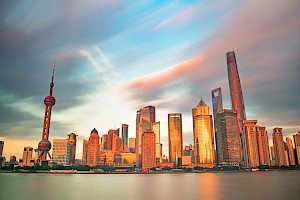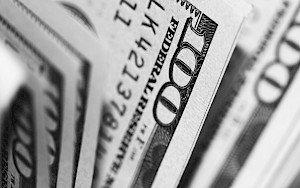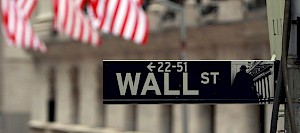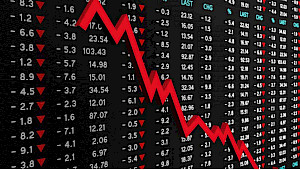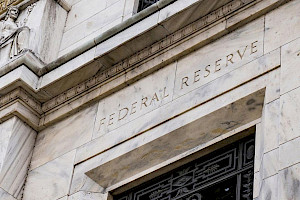Should we invest in China or not?
October 07, 2021Originally published in The Toronto Star on September 28, 2021 as contributing columnist
Is BlackRock’s entry into China a “blunder” as George Soros claimed in a recent op-ed? Or are critics misconstruing China’s recent regulatory crackdown, as Ray Dalio would like us to believe?
Both Soros and Dalio are highly respected and very successful global macro investors. BlackRock, the world’s largest fund management group with close to $10 trillion under management, recently launched a set of mutual funds for the Chinese consumer. It raised $1 billion from more than 100,000 investors, making it the first foreign-owned fund group in China.
Soros believes this move was a mistake that will not only lose money for BlackRock clients, but also imperils the national security interests of the U.S. He believes that the current regime regards all Chinese companies as instruments of the one-party state, and will use them accordingly to consolidate President Xi Jinping’s ever-increasing power by “bringing to heel any entity rich enough to exercise independent power.” He gives several other reasons to be wary, including a collapsing birth rate, an over-indebted real estate sector and, most importantly, the recently launched “common prosperity” program, which is designed to redistribute the wealth of the rich to the general population. A worthy idea in principle, but certainly not investor friendly.
In a response to the Soros op-ed, BlackRock justified its move by stating that the U.S. and China have a large and complex economic relationship, and that financial firms like them contribute to the economic “interconnectedness” of the world’s two largest economies. Furthermore, it said that given the overwhelming majority of its assets are for retirement, it must have exposure to a broad and diversified range of investments. In essence, China is too big to be left out.
Adding to the pro-China side, Dalio takes the position that the recent regulatory crackdown on tech, education and gaming companies was being misconstrued by the West as being anti-capitalist. He points to a 40-year trend that demonstrates China has embraced capitalism and all its participants, from capital markets to entrepreneurs. Dalio’s take on the recent crackdowns is that Chinese regulators are working in a rapidly changing environment and aren’t clear in their actions or messaging. His bottom line is that China has delivered great returns and will continue to do so. Investors who don’t get that will continue to miss out.
So, what to make of these contrasting opinions? Historical patterns provide additional insight into what seems to be unfolding and are very useful when making long-term investment decisions. The rise of the U.S. and China as industrial powers share similar features, and are separated by only 100 years. During its industrial buildup, the U.S. mostly tried to mind its own business and stay out of global squabbles. Isolationism reigned supreme. Much like China today, the U.S. focus was mostly economic superiority.
But then, through a series of presidential doctrines starting with the Monroe Doctrine in 1823, the U.S. began to slowly flex its military muscle and continued to ratchet it up right up to the present day. China is now starting to flex its own military muscle with its own version of a “Monroe Doctrine” with respect to the South China Sea and Taiwan. Its tone is increasingly bellicose. And its military and economic might, not to mention its technological capabilities in AI, robotics and quantum communications, is rapidly catching up to the U.S. Furthermore, its brutal repression of dissent internally, specifically with the Uyghur population, is increasingly worrisome.
U.S./China relations started to deteriorate badly during the Trump administration and are not faring much better for Biden’s either. I am afraid we may be entering a Cold War period as both powers vie for global supremacy. That will lead to an acceleration of deglobalization in trade and investment. Tit for tat, tariffs and regulatory attacks targeting investments and businesses may intensify, which could lead to trade wars. History shows that when countries are busy trading with each other, there is little appetite for conflict. People on both sides can prosper and be happy in their hedonistic consumption. It is usually when trade stops that wars start.
All-out war, although a possibility, is unlikely. The U.S. and China are both nuclear powers and they need each other in more ways than they will acknowledge. The U.S. is China’s biggest trading partner representing 17.5 per cent of China’s total exports. And China is the largest single foreign holder of U.S. debt, owning about $1.1 trillion. That number has come down quite a bit the last few years as China has attempted to de-dollarize its economy. But China can’t just dump its U.S. treasury holdings without hurting mostly itself, and, on the other side, the U.S. needs China’s cheap goods for its avaricious consumer economy. It’s a reluctant but symbiotic relationship that will be hard to unwind by either side without effectively shooting oneself in the foot. This relationship of convenience may help avoid a worst case hot war scenario.
But this relationship is definitely on the rocks. The Chinese regime under President Xi is becoming more authoritarian and more belligerent. Perhaps it’s time investors start factoring in non-financial considerations in their investment decision making (such as human rights) as we already do with ESG-type investments. Lastly, Although western investment is welcome for now, I see a real risk that it won’t be in the future. China may continue to rise as Dalio predicts, but to who’s benefit and at what cost?
Caveat emptor.


